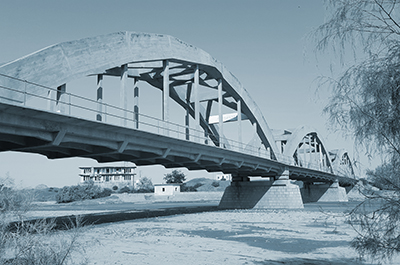
The research “Eritrea Mobility and Cultural Heritage: New Frontiers of the Horn of Africa (EMotion)” was granted through the Polisocial Award in 2018.
Polisocial is the social engagement and responsibility programme of Politecnico di Milano which extends the university’s mission to social issues and needs that arise from the territory, on both a local and global level. The “Polisocial Award” initiative rewards the best research projects with social purposes and has so far financed 41 projects with over 3 million euros, involving more than 330 researchers.
Description, main objectives, project development
Eritrea is a key country in the strategic area of Horn of Africa (HoA). On 9.7.2018, thanks to the acceptance of the peace agreement by Ethiopia, all the issues related to the border were reviewed and Eritrea opened the access to the Massawa port. In November 2018 all the UN sanctions on Eritrea were lifted. In terms of continental policies, the African Union has been engaged in designing policies able to overcome the existing physical and cultural barriers.
It is therefore crucial to solve the problem of physical and cultural barriers in the HoA contributing to the creation of an integrated continent (Agenda 2063). A key factor is the role of the transport network, which has to be designed reflecting on the current meaning of sustainable mobility, taking into consideration the development policies of urban and territorial areas, cultural heritage, energy efficiency and environmental quality.
The main axis of this project is the Asmara-Massawa road (117 km long, difference in elevation 2400 m, single carriageway, about 10 civil important structures). Besides being a road for trade and transport, this strategic axis represents an extraordinary opportunity to design an original and innovative itinerary system: the challenge of this project is to plan a new mobility preserving at the same time the pre-existing historic infrastructure: n extraordinary and vulnerable cultural heritage which consists of a road built in 1935, considered as a masterpiece of engineering, that connects archaeological, historical-artistic and architectural sites, and that is itself summation of artefacts and monuments to be preserved, protected and enhanced.
The new model of smart mobility may represent the ideal and real bridge, capable of transferring goods, ideas, knowledge, values and connecting people, as well as reuniting historically and culturally related places and paths: the road can become an instrument of valorisation and commercial / cultural / touristic development, but it needs to be safe, equipped, easily accessible and oriented to a sustainable mobility, thus being able to “enhance economic growth and improve accessibility, better integration of the economy while respecting the environment, improving social equity, health, resilience of cities, urban-rural linkages and productivity of rural areas” (SDGs 2030) also giving value to cultural identities and heritage (Agenda 2063, 5).
The project aims at providing a set of integrated solutions for sustainable development, for the valorisation and fruition of cultural heritage and for a better quality of life in Eritrea and the HoA, through the activation of high-profile research lines and improving the training. The outcomes are a feasibility study meant to support the challenge of promoting mobility on the Asmara-Massawa route, also enhancing and protecting the historical elements of cultural value of the route itself, and of the areas it goes through.
The quantified Eritrean data analysis at present is not available, following the isolation of the Country until the recent peace. This project provides a contribution to fill this gap.
The advancement of the state of the art has been provided through a set of actions:
- construction of an operational atlas for the knowledge of the territory (with the inventory in GIS environment) to support future maintenance strategies, the management of risks and new needs;
- analysis of the Asmara-Massawa case study as cultural heritage that combines tangible and intangible elements;
- analysis of the characteristics of the structures along the road in relation to the current mobility needs;
- analysis of the current flows of goods and people and of future scenarios (also the planning of tourist itineraries).
EMotion is compliant with a comprehensive multidisciplinary approach addressing: heritage, construction and materials, environment, mobility, energy, management and social impact. This approach combines theories, methods, tools and techniques from Humanities, Engineering, Earth Sciences, Technologies, providing new information and a model that can be applied to other context and replicated by expanding case studies.
Project team
Project Team: Federico Cheli – Scientific Coordinator of the project, Susanna Bortolotto - Project Manager, Francesco Augelli, Nelly Cattaneo, Matteo Colombo, Francesco Ferrise, Katherina Flores Ferreira, Manish Kuram , Michela Longo, Daniele Marchisotti, Serena Massa, Monica Papini, Edoardo Sabbioni and Emanuele Zappa.
Partners: Eritrean Embassy of Rome, Italian Embassy of Asmara, Asmara Heritage Project, Basque transport company, E-Co, SINA-National Highway Initiatives Society, Pirelli, Tom Tom, CeRDO - Centro Ricerche sul Deserto Orientale, ISMeO - Associazione Internazionale di Studi sul Mediterraneo e l’Oriente, Università Cattolica of Milan and Università degli Studi L'Orientale of Naples.
